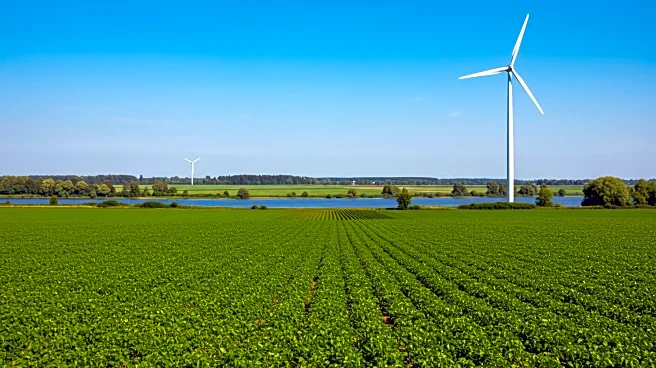What's Happening?
The Indonesian government is launching a national program to establish self-sufficiency zones for food, water, and energy. This initiative is guided by Presidential Instruction No. 14/2025 and Presidential Decree No. 19/2025, aiming to accelerate the country's strategic infrastructure agenda. Coordinating Minister for Food Affairs Zulkifli Hasan announced that the program will focus on developing integrated zones to enhance Indonesia's long-term resource security. The initiative involves inter-ministerial coordination to ensure efficient implementation and alignment with the 2026 national budget. Priority locations include Wanam in South Papua, Central Kalimantan, South Kalimantan, and South Sumatra. The government has allocated approximately IDR 8 trillion (USD 510 million) for the initial phase, which includes developing new rice fields in these regions.
Why It's Important?
This initiative is crucial for Indonesia's long-term resource security, aiming to reduce dependency on external sources for food, water, and energy. By developing self-sufficiency zones, Indonesia seeks to strengthen its infrastructure and ensure sustainable resource management. The program's focus on renewable energy development aligns with global trends towards sustainability and could position Indonesia as a leader in resource management in Southeast Asia. The allocation of significant funds underscores the government's commitment to this strategic priority, potentially boosting local economies and creating job opportunities in the targeted regions.
What's Next?
The program will proceed with the development of new rice fields and renewable energy projects in the priority regions. The government will continue to coordinate efforts across ministries to ensure efficient implementation. Monitoring and evaluation mechanisms will likely be established to assess progress and make necessary adjustments. Stakeholders, including local communities and businesses, may be engaged to support the initiative and maximize its impact.










